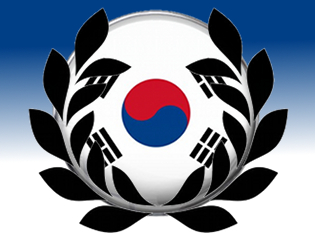 Caesars Entertainment may have lost out on Macau, but all isn’t lost for the Las Vegas-based company because it now has the distinction of becoming the first foreign-owned casino resort to be built in South Korea. Sure, it doesn’t have the same gambling riches as Macau has, but considering that the country has Asia’s fourth largest economy, it’s a pretty darn good place to start for Caesars to finally tap into the Asian casino market.
Caesars Entertainment may have lost out on Macau, but all isn’t lost for the Las Vegas-based company because it now has the distinction of becoming the first foreign-owned casino resort to be built in South Korea. Sure, it doesn’t have the same gambling riches as Macau has, but considering that the country has Asia’s fourth largest economy, it’s a pretty darn good place to start for Caesars to finally tap into the Asian casino market.
“We are grateful to the Korean government for their initial approval, paving the way for the opportunity to build and operate our first integrated resort in Korea,” Gary Loveman, Caesars Entertainment Chairman, CEO and President, said in a released statement.
“We are excited about the opportunity to expand our network and brands to Asia. Foreign visitation to South Korea has grown significantly, and we look forward to creating a world-class destination to further support Korea’s economic growth and tourism goals.”
The good news also had a positive effect on Caesars’ stock prices, which improved by .24 points before closing at 23.91 at the NASDAQ board. It’s definitely welcome news, especially after Caesars’ rough going recently, which included a tripling of net loss to $1.76 billion due to higher write-downs. The struggle to reduce its debt has even forced it to sell four casinos to an affiliate for $2.2 billion last month.
But this is a good day for Caesars, even if it is fleeting with preparations and more expenses now in the horizon.
The preliminary approval by the South Korean government means that Caesars can now go ahead with its proposed joint venture with Lippo Ltd., A Hong Kong-listed property development firm, to begin drawing up its plans for its 2.3 trillion won ($2.2 billion) gambling, hotel, and shopping project that will be built near Incheon International Airport, west of the capital Seoul. Given how many local casinos are already set up in the country, it’s going to be a breath of new air to have a Western operator in the mix, especially one with the cache that Caesars Entertainment has as a pretty popular global brand. At the very least, Caesars can now stick its tongue out at Genting Singapore and Japan’s Sega Sammy Holdings, two firms that have also made pitches to get their own licenses in South Korea.
More importantly for Caesars, it’s coming into a market that already has a budding casino industry. The country, after all, already has 17 casinos and all but one of them are open exclusively to foreigners. Back in 2012, these joints reported earning a combined revenue of 2.46 trillion won, while attracting as many as 5.4 million bettors for the year. That’s not a bad number to dive into, especially considering that the proposed casino will also be exclusive to foreigners.
But there’s no mistaking that Caesars’ casino could very well be a game changer in the South Korean casino scene. “It’s going to change the landscape of Korean casinos because it’ll be the first integrated resort-style foreigners-only casino,” D.S. Kim, a Hong Kong-based analyst at BNP Paribas Securities Asia told Bloomberg.
“The existing casinos in Korea are like gambling dens which do not offer any non-gaming amenities such as spa, restaurants or entertainment shows. They simply cannot cater for large groups of visitors.”
And here’s another point: everyone’s talking about Japan hosting the 2020 Summer Olympics as a huge bait for all these casino operators that everyone forgets will have its own Olympics to host sooner than that. The 2018 Winter Olympics will be held in Pyeongchang and Caesars has made it known that it will race against the clock to make sure the joint casino with Lippo is up and running by that time. For that to happen, though, the company needs to get all its finances in order because it’s gonna cut a massive check – 743.7 billion won combined between Caesars and Lippo – to complete the first phase by 2018. From there, another 1.7 billion won is expected to be spent on building hotels, residential buildings, convention centers and shopping malls.
As far as siphoning some of Macau’s high rollers, Caesars should take comfort knowing that South Korea is aggressively planning to draw as many as 10 million Chinese visitors a year by 2020. Should that plan pay off, it’s going to be a huge leap from the 4.3 million Chinese visitors the country had last year, and for Caesars, for Chinese visitors coming to South Korea by then means more money coming to its establishment.
“Korea is the optimal location to draw Chinese bettors,” Song Hak Jun, a professor in the hotel and convention management department at Pai Chai University in Daejon, South Korea, told the news agency. “Everyone’s competing to absorb China’s outbound tourist demand. Having casino resorts will initially bring explosive growth to Korea, too.”
